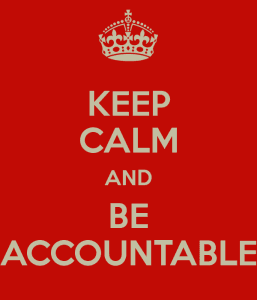In the June 28, 2016 Ask The Headhunter Newsletter, several readers raise questions about HR that we can’t keep ignoring.
Questions
Reader 1: Back in the 20th century, employers actually reviewed resumes by reading them rather than scanning them into a computerized ranking system. Keywords have turned hiring into a pass-the-buck game, with HR complaining it can’t find talent! Well, HR isn’t looking for talent. HR isn’t looking for anything. Phony algorithms are keeping the talent unemployed while HR gets paid to do something else! The question is, what is HR doing?
Reader 2: Two weeks after receiving a written offer from this company — and after I quit my old job and moved — HR sends me an e-mail saying there’s no job. That’s right: They hired me and fired me before I started! What am I supposed to do now? I can’t go back to my old job — I quit. The HR person who gave me the offer still has her job. Shouldn’t she be fired?
Reader 3: I was selected for a new, better job paying more money after rounds of interviews. I was all set to start when my HR department called me in to say the job was withdrawn due to budget problems. This was for a promotion at my own company! How did they have the budget a month ago when they posted the job and gave it to me, but not now? What can I do?
Reader 4: My friend attended a business roundtable where multiple employers complained they couldn’t find people. She stood up and said she was a member of several large job-search networking groups, with an aggregate membership of thousands in the Boston area. She offered to put them in touch, help them post positions, and contacted them multiple times afterwards to help facilitate this. Nobody has taken her up on it. Talent shortage my…!
Nick’s Reply
This edition of Ask The Headhunter is dedicated to good Human Resources (HR) managers who work hard to ensure their companies behave with integrity and in a businesslike manner toward job applicants — and who actually recruit.
This is also a challenge to the rest. Do the readers’ complaints above mystify or offend you? You cannot pretend to manage “human resources” while allowing your companies — and your profession — to run amuck in the recruiting and hiring process.
The problems described above are on you — on HR. It’s your job to fix them. Either raise your HR departments’ standards of behavior, or quit your jobs and eliminate the HR role altogether at your companies.
Here are some simple suggestions about very obvious problems in HR:
Stop rescinding offers.
 Budget problems may impact hiring and internal promotions, but it’s HR’s job to make sure all the i’s are dotted and the t’s are crossed before HR makes offers that impact people’s lives. Don’t make job offers if you don’t have the authority to follow through. If your company doesn’t give you that authority, then quit your job because you look like an idiot for having a job you’re not allowed to do. What happens to every job applicant is on you. (See Pop Quiz: Can an employer take back a job offer?)
Budget problems may impact hiring and internal promotions, but it’s HR’s job to make sure all the i’s are dotted and the t’s are crossed before HR makes offers that impact people’s lives. Don’t make job offers if you don’t have the authority to follow through. If your company doesn’t give you that authority, then quit your job because you look like an idiot for having a job you’re not allowed to do. What happens to every job applicant is on you. (See Pop Quiz: Can an employer take back a job offer?)
Stop recruiting people then ignoring them.
In other words, stop soliciting people you have no intention of interviewing or hiring. More is not better. If it’s impossible to handle all job applicants personally and respectfully, then you’re recruiting the wrong people and too many of them. Either treat every applicant with the respect you expect them to show you and your company, or stop recruiting — until you have put a system in place that’s accurate and respectful. Having control over people’s careers isn’t a license to waste anyone’s time. Your company’s rudeness in hiring starts with you. (See How HR optimizes rejection of millions of job applicants.)
Stop recruiting stupidly.
 The job of recruiting is about identifying and enticing the right candidates for jobs at your company. It’s not about soliciting everyone who has an e-mail address, and then complaining your applicants are unqualified or unskilled. You can’t fish with a bucket.
The job of recruiting is about identifying and enticing the right candidates for jobs at your company. It’s not about soliciting everyone who has an e-mail address, and then complaining your applicants are unqualified or unskilled. You can’t fish with a bucket.
You say you use the same services everyone else uses to recruit? Where’s the edge in that? Paying Indeed or LinkedIn or Monster.com so you can search for needles in their haystacks is not recruiting. It’s stupid. Soliciting too many people who are not good candidates means you’re not doing your job. If you don’t know how to recruit intelligently, get another job. (See Reductionist Recruiting: A short history of why you can’t get hired.)
Stop demanding salary history.
It’s. None. Of. Your. Business. And it makes you look silly.
 I have a standing challenge to anyone in HR: Give me one good reason why you need to know how much money a job applicant is making. No HR worker has ever been able to explain it rationally.
I have a standing challenge to anyone in HR: Give me one good reason why you need to know how much money a job applicant is making. No HR worker has ever been able to explain it rationally.
It’s private information. It’s personal. It’s private. It’s shameful to ask for it. Do you tell job applicants how much you make, or how much the manager makes, or how much the last person in the job was paid? If you need to know what another employer paid someone in order to judge what your company should pay them, then you’re worthless in the hiring process. You don’t know how to judge value. HR is all about judging the value of workers. You don’t belong in HR. (See Should I disclose my salary history?)
Get an edge when HR gets in your way!
Ask The Headhunter PDF Books
Parting Company | How to leave your job
Employment Tests: Get The Edge!
Overcome the daunting obstacles that stop other job hunters dead in their tracks!
Stop avoiding hiring decisions.
In a market as competitive as today’s, if it takes you weeks to make a hiring decision after interviewing candidates, then either you’re not managing human resources properly, or you’re not managing the hiring managers in your company. Qualified job applicants deserve answers. Taking too long to make a choice means you have no skin in the game, and that makes you a dangerous business person. After you waste too many applicants’ time, your reputation — and your company’s — is sealed. With a rep like that, good luck trying to get hired yourself.
Stop complaining there’s a talent or skills shortage.
There’s not. With 19.5 million people unemployed, under-employed, and looking for work (even if they’re no longer counted as  part of the workforce), there’s plenty of talent out there to fill the 5.6 million vacant jobs in America. (See News Flash! HR causes talent shortage!) Recruit is a verb. Get out there and find the talent!
part of the workforce), there’s plenty of talent out there to fill the 5.6 million vacant jobs in America. (See News Flash! HR causes talent shortage!) Recruit is a verb. Get out there and find the talent!
If your idea of recruiting is to sit on your duff and wait for Mr. or Ms. Perfect to come along on your “Applicant Tracking System,” then quit your job. If your idea of recruiting is to pay a headhunter $20,000 to fill an $80,000 job, then you are the talent shortage. Your company should fire you.
“Human Resources Management” doesn’t mean waiting for perfect hires to come along. Ask your HR ancestors: They used to do training and development to improve the skills and talent of their hires — as a way of creating competitive value for their companies.
The good HR professionals know who they are. The rest behave like they don’t know what they’re doing and like they don’t care. We’re giving you a wake-up call. Do your job, or get out.
My challenge to HR professionals: If you aren’t managing the standard of conduct toward job applicants at your company, if you aren’t really recruiting, if you’re not creating a competitive edge for your company by developing and training your hires, then you should quit your own job. If you aren’t promoting high business standards within the HR profession, then there’s no reason for HR to exist. Your company can run amuck without you.
To everyone else: How do these problems in HR affect you?
: :


 The big problem is I started to be sexually harassed by a woman co-worker. (I am gay.) This became very uncomfortable. When I finally reached my temp agency, they told me to talk to the woman and tell her (nicely) to take it easy. When I spoke with her, she seemed okay, but then she sent me a very disturbing passive-aggressive e-mail. I forwarded that to my agency and to my on-site manager.
The big problem is I started to be sexually harassed by a woman co-worker. (I am gay.) This became very uncomfortable. When I finally reached my temp agency, they told me to talk to the woman and tell her (nicely) to take it easy. When I spoke with her, she seemed okay, but then she sent me a very disturbing passive-aggressive e-mail. I forwarded that to my agency and to my on-site manager. I recently got a very nice thank-you note from an applicant to whom I had sent a no-thank-you — that is, a rejection letter. She seemed surprised to hear from me. As a manager, it has always been my practice to reply to every applicant either by letter or e-mail. I’ve been criticized for the time it takes. However, I believe that if someone takes the time to express interest in your company, the least you can do is tell them “no, thank you” if you don’t want them.
I recently got a very nice thank-you note from an applicant to whom I had sent a no-thank-you — that is, a rejection letter. She seemed surprised to hear from me. As a manager, it has always been my practice to reply to every applicant either by letter or e-mail. I’ve been criticized for the time it takes. However, I believe that if someone takes the time to express interest in your company, the least you can do is tell them “no, thank you” if you don’t want them. It’s easy to be rude to a resume; but you can’t hire resumes. Top-notch workers in your field will not stand for rudeness. Talk to all the people you pissed off when you ignored their applications, and you will learn what rude is. Rude is awakening to find your company’s professional reputation has been trashed by good applicants who found out you’re not as good as they are. (See
It’s easy to be rude to a resume; but you can’t hire resumes. Top-notch workers in your field will not stand for rudeness. Talk to all the people you pissed off when you ignored their applications, and you will learn what rude is. Rude is awakening to find your company’s professional reputation has been trashed by good applicants who found out you’re not as good as they are. (See 


 My skill set wasn’t developed by being average, and I will not accept anything average. I make my employer lots of money. I impact the bottom line and that will cost you.
My skill set wasn’t developed by being average, and I will not accept anything average. I make my employer lots of money. I impact the bottom line and that will cost you.











